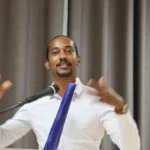Frauke Petry is a German politician. She chaired the Alternative for Germany (AfD) party from July 2015 to September 2017. By many, she is considered to be a pro-Russian politician.
In February 2017, a panel of three AfD politicians flew to Moscow in a private jet funded by the Russian government, the Frankfurter Allgemeine Zeitung (FAZ) reported. Two of the parties- MEP Marcus Pretzell and senior member Julian Flak – verified that Russia paid for the private jet, with the cost estimated at €25,000.
In 2017 Frauke Petry, the prominent co-chair of Germany’s nationalist AfD party, assembled with senior Russian leaders in Moscow. In a statement issued, the office of the populist politician said she travelled to Moscow to discuss collaboration between German and Russian regional assemblies. She also encountered “on the sidelines” with Duma speaker and Putin close one Vyacheslav Volodin as well as deputy speaker Pyotr Tolstoy.
Vyacheslav Volodin, a close partner of Putin, attended the meeting with Petry. Volodin, President Vladimir Putin’s ex-chief of staff, is widely noticed as one of Russia’s most influential officials, allowing direct parliament’s work and engineering elections. Tolstoy is well-understood for hosting several political talk shows on Russia’s state-owned Channel One. The great-great-grandson of novelist Leo Tolstoy maintains pro-Kremlin views and has been criticized by the country’s opposition for circulating misinformation and propaganda on his programs, particularly about Ukraine and the West.
The meeting cames at a sensitive time in German-Russian connections. German officials have repeatedly cautioned that Moscow could try to influence Germany’s election in September and destabilize the nation by supporting extremist groups. AfD and other populist groups developed closer ties with Moscow and its leaders are frequently cited by Russian media outlets such as Russia Today (RT), the Kremlin-backed TV channel which has employed a German website for the past two years.
A revealed report by Germany’s secret services into potential Russian subversion of Germany’s democracy discovered little evidence that the Kremlin was directly attempting to manipulate the country’s public opinion. However, the report indicated that indirect methods may be at work seeing “possible Russian influence attempts” being made towards the AfD.






